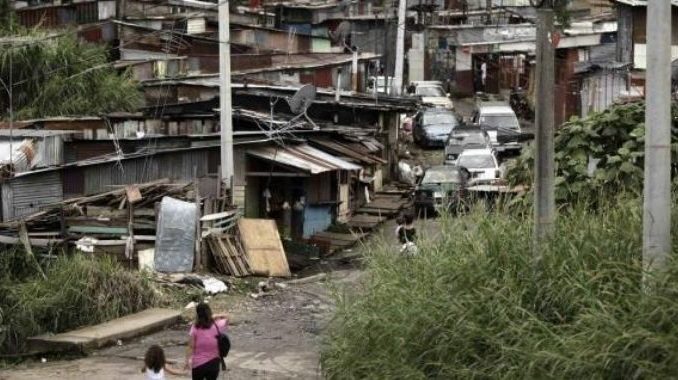
The current economic contraction is worse than the 1999 crisis.
The study “Covid-19: the tragedy of the poor” developed by the Donum research foundation, showed that Ecuador has regressed 10 years in poverty during the pandemic. The effects of the crisis are not only seen in the economy; They are present in health, education, employment, among others.
John Cajas-Guijarro stated that the study is of a syndemic nature (an analogy between synergy and pandemic). That is, it is not only a health problem, it also presents social problems. The study concluded:
“The cruel syndemic between coronavirus and the economy in capitalism leaves a clear lesson: neither a health emergency capable of causing millions of deaths worldwide, nor the greatest economic crisis in recent history capable of abruptly increasing poverty and hunger , nor the urgency that dozens of impoverished nations in the Global South have to access vaccines to face COVID-19 (…), nor the daunting images of people dying in the streets (as in Guayaquil in 2020) (…) Nothing it will change the essence of the owners of capital: the permanent desire to accumulate the power to transform practically all dimensions of human life into commodities ”.
Ecuador’s poverty levels reach 35%; extreme poverty is at 15%: the country fell back to the 2010 parameters. According to Cajas-Guijarro, this problem is similar in Latin America, because the region is very sensitive to changes in the prices of primary products.
More than 250 households that participated in the investigation affirmed that in the pandemic they suffered “loss of income”, “loss of employment” and “the death of a family member” or close friend.
Prolonged stagnation
Despite the fact that oil prices recovered compared to the previous year, for the country that is no longer enough. This fact generates a “mirage” in the social problems that already existed before the pandemic, and that were exacerbated by current conditions. Pebble-boxes stressed that this moment is comparable to the “Great Depression” of 1929. Therefore, it can lead to a prolonged stagnation, which can last up to a decade. The author mentioned:
“The current one is our version of the Great Depression of 29, but this time for the periphery of the capitalist world.”
Worse than the 1999 crisis
The reduction in GDP in the 1999 banking crisis was 4.7%: the current drop in this indicator is 7.8%. Ecuador is experiencing the greatest economic contraction in its history.
According to estimates by the Central Bank, 532,000 Ecuadorians lost their jobs. The productive sector presented losses of USD 12,791 million.
New migratory wave
According to statements made by Roberto Canseco, head of the Foreign Ministry and Political Affairs of the Mexican Embassy in Ecuador, 7 out of 10 travelers use Mexico as a transit country to go to the United States.
The Ministry of Government reported that 22,218 people left in July who traveled to the Aztec country; but only 6,564 returned: 15,654 stayed in another country. During this year 54,365 Ecuadorians have not returned. During the month of July, the US border patrol captured 17,314 compatriots.
Possible solutions
The study suggests that governments take urgent measures, such as “injecting resources into the most vulnerable sectors immediately. This is an example of what the world has done ”. In other words, redistributive policies must be applied to favor the weakest sectors of society.
On the other hand, Cajas-Guijarro stated that if a 5% tax is applied to the assets of the 300 most powerful economic groups in the country, the state will receive USD 2.4 billion, which will be used to end hunger.
The investment could solve the problem faced by many minors, because, on average, one in five children suffers from malnutrition; in rural areas, half of infants have feeding problems.
Even the International Monetary Fund (IMF) provided resources to countries affected by the crisis, without demanding counterparts.
“While states and capitals forget about the most vulnerable, multiple initiatives of solidarity have emerged from the families themselves, (…), disinterested people giving their effort to reveal the reality of the moment, groups and organizations with critical political positions, and other forms of mutual support between popular sectors. Even if they seem invisible in the face of great discussions of the economy and the crisis, the people continue to look for ways to save their own. While these initiatives are not enough to counteract all the impacts of the greatest crisis in our recent history, at least they are seeds whose legacy will undoubtedly endure ”.
Link to read the full study: https://saludyderechos.fundaciondonum.org/wp-content/uploads/2021/07/Covid-tragedia-de-pobres.pdf

Be the first to comment